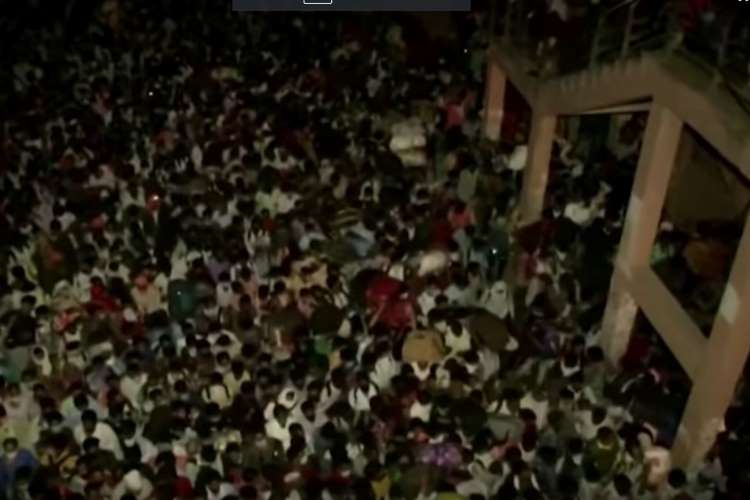
The exodus of migrant workers from New Delhi will be one of the lasting images of the new coronavirus outbreak. Thousands of daily wagers descended on East Delhi’s Anand Vihar bus terminal on March 29, while many others set off to their homes in Bihar and Uttar Pradesh by foot. Penniless and without work, they were left with no option but to flee the national capital before the demand for next month’s rent came up. The episode exposed a major chink in the implementation of the country’s several welfare schemes.
India’s construction industry employs more than 3.24 crore people, the most after agriculture. The construction workers move across the country in search of opportunities. The Building and other Construction Workers’ Act (BOCWA) mandates that 1% of the value of the construction work undertaken be levied as a cess towards addressing the growing welfare concerns of the labour in the sector.
READ: How safe is drinking water in times of Covid-19
The Act mandates protective devices such as goggles, helmets, shoes and gloves at the workplace, but the construction workers in the city do not get them because of a clause of the Act that says the expenses will be reimbursed only after the purchase. A Delhi University innovation project comparing the pulmonary fitment of the labour force in the construction industry found that labourers were affected badly by this. (Narayanasamy, Krishnakumar, Thakur and Pais, 2017) Despite the large number of people involved in the construction sector, the extent of unionisation is really feeble. Most workers in the city count more on the benevolence of the contractors than on the advocacy by trade unions.
READ: RBI must help banks accommodate shattered businesses
Another study by Vidya Soundararajan in EPW (2013) highlighted the low level of registration under BOCWA except in Kerala, Tamil Nadu and West Bengal. The situation remains the same even today. In fact, because of manipulative political practices, a large number of people unrelated to the sector got registered in Delhi, says Rajesh Kumar, a trade unionist working in the Mayapuri area. All this manipulation was done to bag the benefits of the scheme that provides for a compensation of Rs 2,50,000 in the contingency of death at workplace, and Rs 1,00,000 for natural deaths. The BOWCA cardholders also get educational and health allowances. The entitlement for pension has resulted in a rush for BOWCA enlistment that defeats the very purpose of the Act.
In the wake of a ban on construction activity by Central Pollution Control Board of India in the national capital region in 2019, the Delhi High court had pulled up the Union and state governments for not offering any succour to workers with the BOCWA funds. In 2018, in response to a petition filed by civil society activists, the Supreme Court took strong exception to the non-implementation of crèche facilities at construction worksites for children of workers, despite the BOCWA Act stipulating the same. Finance minister Nirmala Sitharaman had said on March 26 that the BOCWA funds will be used to support the registered workers, but the announcement seems to have come a bit too late for any meaningful action in the face of the humanitarian crisis caused by the Covid-19 outbreak.
READ: Four lessons from Covid-19 for fight against climate crisis
It is regrettable that the Delhi BOCWA committee failed to set up welfare kitchens and shelters for the workers, most of whom were with the construction sector, despite having a corpus in excess of Rs 2,000 crore under its disposal. In fact, the departments of labour of the state and central government have much to answer for the huge exodus from the city.
(Krishnakumar S teaches economics at Sri Venkateswara College, University of Delhi)
Krishnakumar S is a New Delhi-based economist. He teaches economics at Sri Venkateswara College, University of Delhi.


